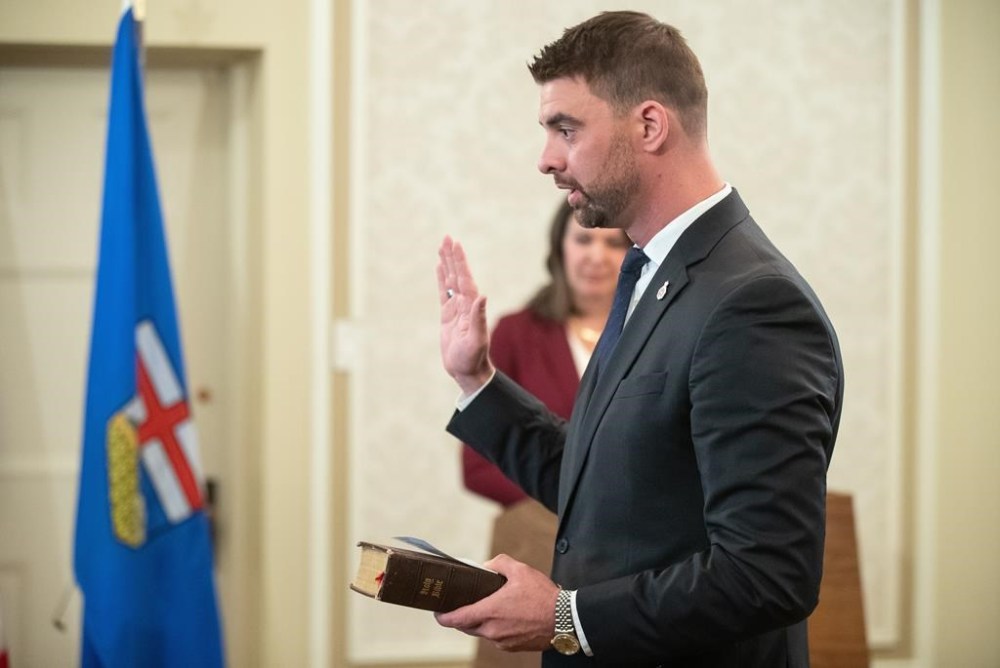Alberta moves to strengthen legislation before proposed opioid class-action lawsuit
Advertisement
Read this article for free:
or
Already have an account? Log in here »
To continue reading, please subscribe:
Monthly Digital Subscription
$1 per week for 24 weeks*
- Enjoy unlimited reading on winnipegfreepress.com
- Read the E-Edition, our digital replica newspaper
- Access News Break, our award-winning app
- Play interactive puzzles
*Billed as $4.00 plus GST every four weeks. After 24 weeks, price increases to the regular rate of $19.00 plus GST every four weeks. Offer available to new and qualified returning subscribers only. Cancel any time.
Monthly Digital Subscription
$4.75/week*
- Enjoy unlimited reading on winnipegfreepress.com
- Read the E-Edition, our digital replica newspaper
- Access News Break, our award-winning app
- Play interactive puzzles
*Billed as $19 plus GST every four weeks. Cancel any time.
To continue reading, please subscribe:
Add Free Press access to your Brandon Sun subscription for only an additional
$1 for the first 4 weeks*
*Your next subscription payment will increase by $1.00 and you will be charged $16.99 plus GST for four weeks. After four weeks, your payment will increase to $23.99 plus GST every four weeks.
Read unlimited articles for free today:
or
Already have an account? Log in here »
Hey there, time traveller!
This article was published 31/10/2023 (722 days ago), so information in it may no longer be current.
EDMONTON – The Alberta government has introduced updated legislation that it says would help make sure anyone who contributed to the opioid addiction crisis is held responsible.
Dan Williams, the minister of mental health and addiction, said the proposed changes aim to strengthen the province’s position in current class actions to recover opioid-related health-care costs and other damages.
“We have been clear since our government was first elected in 2019 that we will hold the manufacturers, wholesalers, distributors and others more accountable for their part in the devastating addiction crisis and its cost on our health-care system,” he said Tuesday.

“I am determined to get every single red cent I can from those who are responsible for causing this crisis.”
In 2018, British Columbia filed a proposed class-action lawsuit on behalf of Ottawa, the provinces and territories against more than 40 opioid makers and distributors. It accuses them of downplaying the harmful effects of this group of painkillers, misrepresenting the risk of addiction and failing to mention side-effects and withdrawal symptoms.
Across Canada, there were more than 38,000 suspected opioid-related deaths between January 2016 and March 2023. Some experts have argued the COVID-19 pandemic likely worsened the crisis.
Several provinces and territories have passed legislation to support the class-action process, and a certification hearing for B.C.’s court action is expected in late November.
The Alberta government announced in October 2019 that it would participate in the class action and passed its initial legislation that December.
The amendments would make pharmaceutical consultants subject to potential legal action, clarify a definition of opioid products and amend a formula to calculate damages.
Williams said the province would use any future damages to support those who are suffering from mental health challenges or for addiction recovery programs.
“All the money that we recuperate from this … will go back to the recovery model,” he said.
“It will go toward expanding capacity first and foremost for treatment — detox, recovery treatment and recovery communities.”
Earlier this month, the Nova Scotia government also introduced updated legislation and the Quebec government tabled an opioid-related bill similar to that of the other provinces.
This report by The Canadian Press was first published Oct. 31, 2023.
— By Colette Derworiz in Calgary


